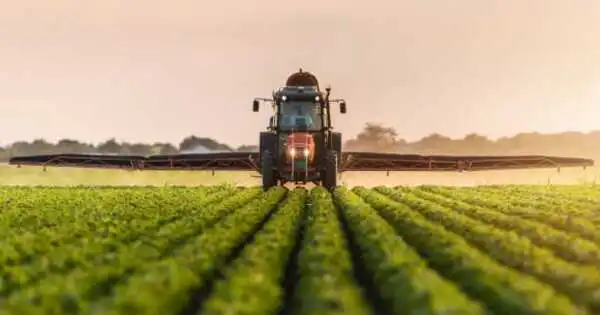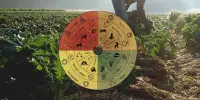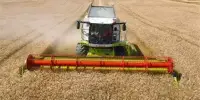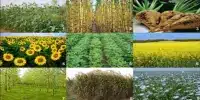Industrial agriculture refers to large-scale, intensive farming practices that use contemporary technology, machinery, and chemicals to increase food productivity and efficiency. It is a type of modern farming that involves the industrialized production of crops, animals, and animal products such as eggs or milk.
It is distinguished by monoculture agriculture, in which enormous tracts of land are dedicated to cultivating a single crop, and livestock husbandry in confined animal feeding operations (CAFOs). Industrial agriculture strives to address the demands of a growing global population by producing high yields at low prices.
Industrial agriculture methods include innovations in agricultural machinery and farming methods, genetic technology, techniques for achieving economies of scale in production, the creation of new consumer markets, the use of patent protection for genetic information, and global trade. These strategies are common in affluent countries and becoming more popular worldwide. The majority of the meat, dairy, eggs, fruits, and vegetables sold in supermarkets are produced in this manner.
Key features of industrial agriculture include:
- Monoculture: Large expanses of land are dedicated to growing a single crop, often with the use of genetically modified organisms (GMOs) to enhance traits such as pest resistance and yield.
- Intensive use of machinery: Industrial farms rely heavily on machinery such as tractors, harvesters, and irrigation systems to automate and streamline farming operations.
- Chemical inputs: Synthetic fertilizers, herbicides, and pesticides are commonly used to boost crop yields and control weeds, pests, and diseases. However, the overuse of these chemicals can lead to environmental pollution, soil degradation, and health risks.
- Irrigation: Industrial agriculture often requires extensive irrigation systems to provide water to crops, leading to increased pressure on water resources and potential depletion of aquifers.
- Livestock confinement: Animals in industrial agriculture are typically raised in confined spaces within CAFOs, where they are fed specialized diets and administered antibiotics and growth hormones to promote rapid growth and prevent diseases.
Critics contend that industrial agriculture causes environmental deterioration, biodiversity loss, soil erosion, water pollution, and greenhouse gas emissions. Furthermore, questions have been made concerning the welfare of animals in CAFOs, as well as the health risks associated with eating food produced with synthetic chemicals and genetically modified organisms.
In response to these criticisms, alternative approaches such as sustainable agriculture, organic farming, and agroecology have gained popularity, emphasizing practices that prioritize environmental stewardship, biodiversity conservation, and social equity while preserving productivity and food security.















